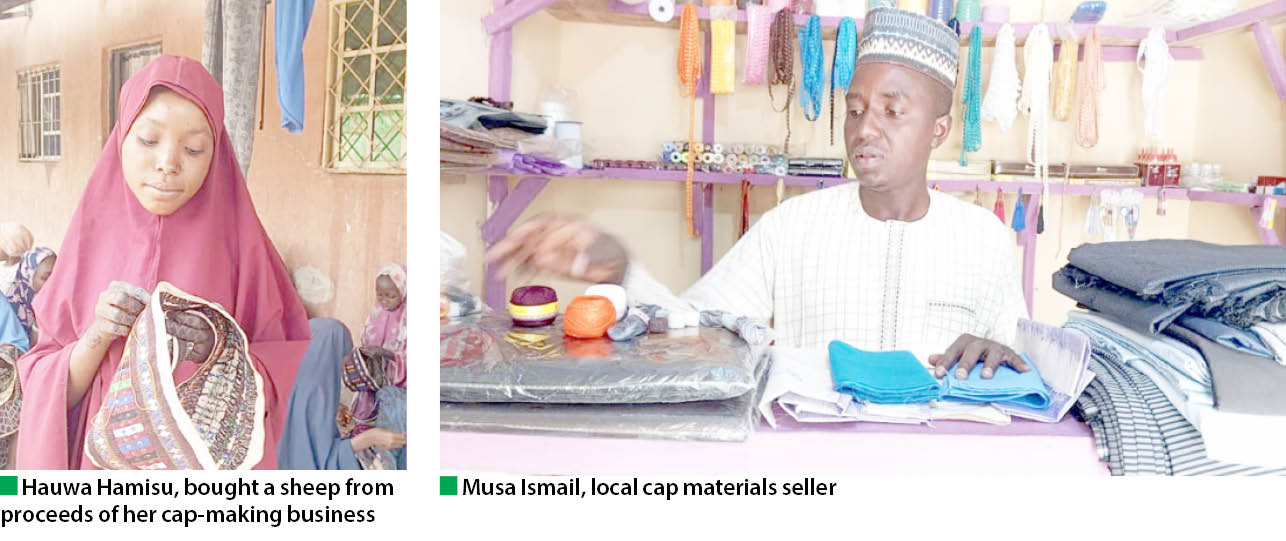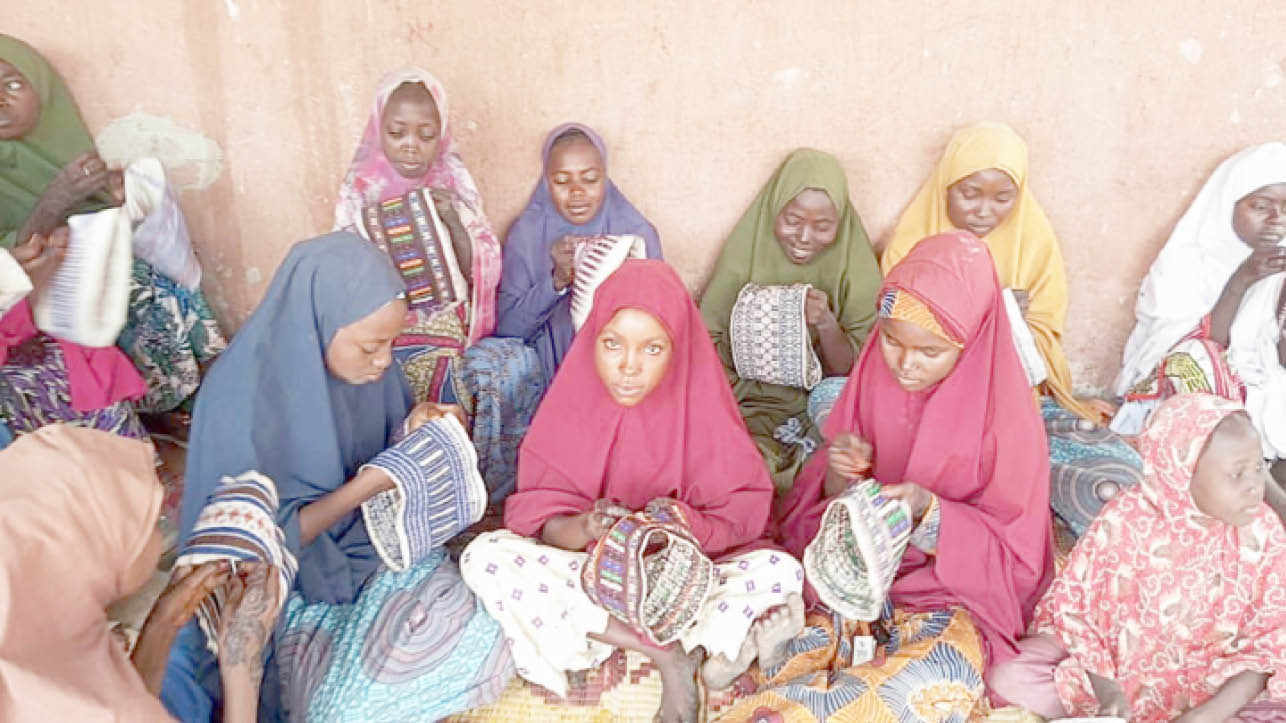Some women in Jigawa State have found a unique way to empower themselves economically through local cap-making, known as “zanna bukar” “Kofar” or “kanwa”, among others.
This traditional craft has become a source of income and pride for many women in the state.
The women in Shuwarin community Kiyawa Local Government Area of the state have formed groups to produce the caps, which are made from cotton fabric and are highly sought after by men in the region. The caps are worn as a symbol of cultural identity and are considered an important part of the traditional attire.
The women said they have recorded improvement in their income from the business which gives them a sense of independence, as they are now able to earn a living and support their families through their work.
US considers over $1bn weapons deal for Israel amid Middle East tensions – Report
Abuja Investments coy gets new GMD
It’s worth noting that this enterprise is not only about economic empowerment but also about preserving the cultural heritage of the region. The women involved in this craft are not only earning a living but also keeping alive a traditional craft that is an important part of their cultural identity.

The initiative highlights how women can be empowered through economic opportunities, and how it can have a positive impact on their lives and their communities.
A local cap maker Amina Sani, a 17-year-old girl from Andaza community in Kiyawa Local Government Area of the state, said the business brought her fortunes as she bought many things including goats, utensils, make up kits, among others.
She also supports her parents from the proceeds but according to her, the challenges are rising inflation and cost of materials. She called on the government to assist people in addressing the problem.
Another woman 19-year-old Hauwa Hamisu of Andaza village said she embraced the business in the absence of a more lucrative occupation that will bring her more money than cap-making. Hauwa said she produces a single cap in four weeks or in three weeks if she is less busy.
She also complained that the materials for making the cap are too expensive even though the price of the cap is not that much. A cap costs between N7000 and N8000.
Ummulkhairi Ja’afar, another local cap maker from the same community, said when she sells her caps in Shuwarin market, she uses the proceeds to buy home appliances and her makeup kits ahead of her marriage.
According to her, the cap in Shuwarin Market is sold between N7000 and N8000 despite the cost of the materials.
Another lady Zainab Isah who produces her cap in a week said she started learning how to make the cap when she was six years old.
Zainab said she is proud of the business as she does not wait for her boy friend to buy things for her.
She called on government at all levels to empower them with materials and sewing machines.
Malam Musa Ismail, a local cap materials seller in Shaiskawa quarters, Dutse metropolis, said cap-making is a major occupation of women in northern Nigeria with some specializing in designing the blue print which is called “Yanki” in Hausa.
Ismail said the only challenge they face is the rising cost of the materials used in cap-making as almost every day, the price keeps going up. He said women are their main customers and they don’t like the increase in the price of any commodity.
He called on the government to establish a company that will be producing local cap materials in the country as almost all the materials are imported.
Daily Trust observed that in Jigawa State, young women usually gather at a location to produce the caps.
Apart from finding a business that is helping them financially, these young women are proud to be custodians of the culture of their communities and region by sustaining the tradition of cap wearing among northern men.

 Join Daily Trust WhatsApp Community For Quick Access To News and Happenings Around You.
Join Daily Trust WhatsApp Community For Quick Access To News and Happenings Around You.